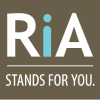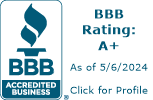Are you looking to improve the results of your retirement plan in the new year?
If you are like many investors, your Roth accounts, IRAs and brokerage accounts have likely performed well over the last few years. However, many are finding that their employer sponsored retirement plans, such as a 401(k) or 403(b) have been underperforming. One reason is that these plans often include limited investment options and, as a result, offer fewer opportunities to diversify. Employers who sponsor these plans are often concerned about minimizing the costs of administering the plan and attempt to simplify the investment decisions for participants. As a result, they only offer fewer than a dozen investment choices. This can be frustrating to investors since the retirement plan is often their largest asset. As part of your new year’s resolutions, it is worth spending time to review whether you are maximizing your 401(k) and 403(b) investment returns and evaluate whether any of the options below are available. It could easily be the most valuable change you make in your finances!
Coordinate Investments Across Multiple Accounts
Assuming the retirement plan has limited options, it may be beneficial to coordinate these investments with other accounts, such as Roth IRAs, traditional IRAs and taxable brokerage accounts. With the use of technology known as “account aggregation” software, a diversified portfolio can be structured using the holdings outside of the plan to complement the fund choices within the plan, as if they were invested in one account. Plus, within the retirement plan there is now no longer a necessity to settle for a poor performing fund just because it is the only fund in its investment category. Instead the choices can be narrowed down to the best performers and the investments held in accounts outside of the retirement plan can then be utilized to fill the remaining asset classes.
An additional benefit is that a tax-efficient portfolio can be achieved, keeping more money an investor’s pocket. An investor can choose to invest in more tax-efficient holdings such as stocks (taxed at lower capital gains rates) in a taxable brokerage account and hold less tax favorable investments such as bonds (taxed at higher ordinary income tax rates) in tax deferred retirement accounts. Downloading and managing these accounts using account aggregation software is the best way to keep up with the large number of moving targets.
Utilize the Brokerage Window
An often overlooked perk available in many retirement plans is a self-directed brokerage window, where a participant can choose from a large universe of mutual funds, ETFS, stocks and bonds. If utilized appropriately, a portfolio can be structured to not only reduce risk, but also potentially improve investment returns. The investment options within the brokerage window are typically from any and all mutual fund companies such as Vanguard, Fidelity, DFA, American Funds, Schwab and more. While the investor should be wary of choosing funds that may be inconsistent with their risk tolerance or investment objectives, if managed appropriately, the performance of these accounts can be maximized.
Technology Is a Game Changer
Investors will find account aggregation software and brokerage windows to be game changers! With additional choices can come confusion, however, and the cost of purchasing software may be relatively expensive and time consuming to implement. By working with a financial advisor who offers these services, better diversification can be achieved, increasing the potential for improved investment returns.
About the Author: David Wilder
David D. Wilder CFP®, CTFA, MST, AIF®, CEPA – Principal & Chief Investment Officer As Chief Investment Officer, Dave chairs Total Wealth Planning’s Investment Policy Committee and leads and manages the investment management team. He is primarily responsible for investment research, preparing and communicating Total Wealth Planning’s economic and investment outlook. As Principal, Dave is responsible for investment advice, with extensive client contact and client-relationship management. He has a Master’s in Tax Law (MST) from Villanova University and is a CFP®, a Certified Trust and Financial Advisor (CTFA), and a Certified Exit Planning Advisor (CEPA).







